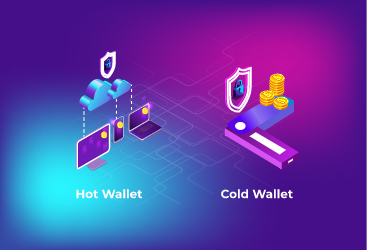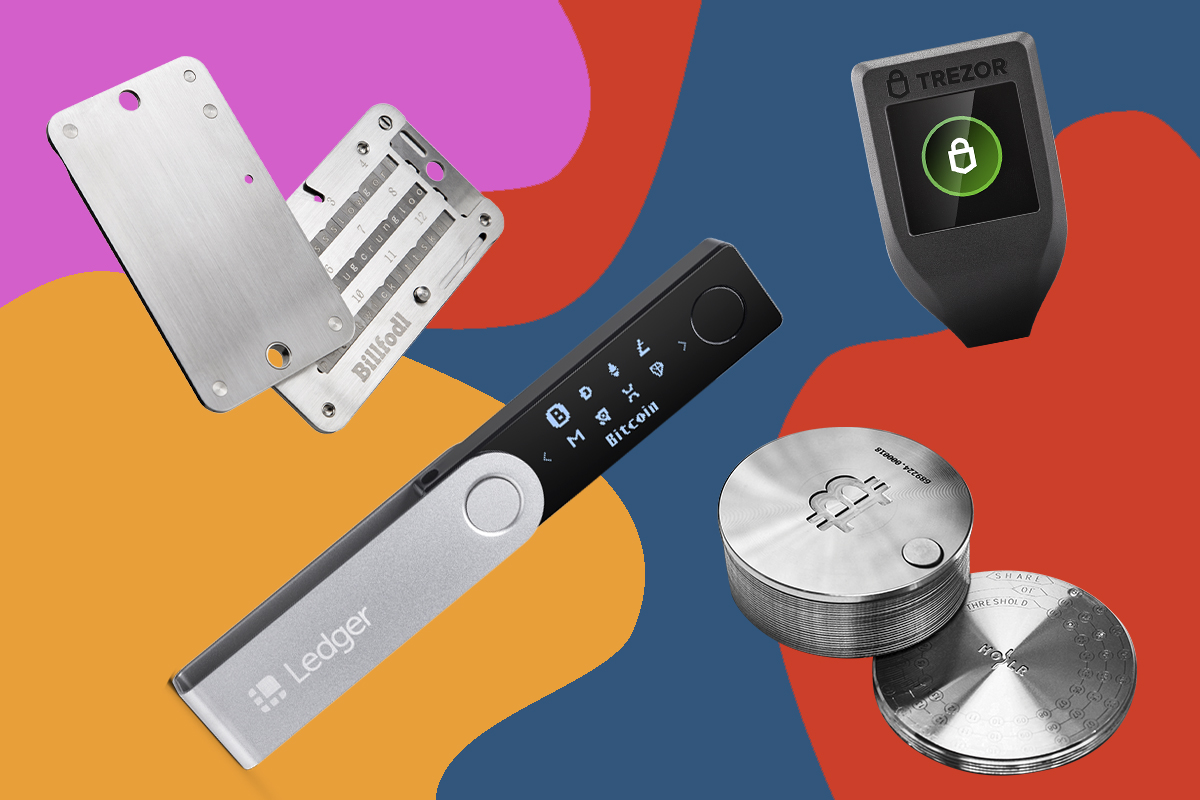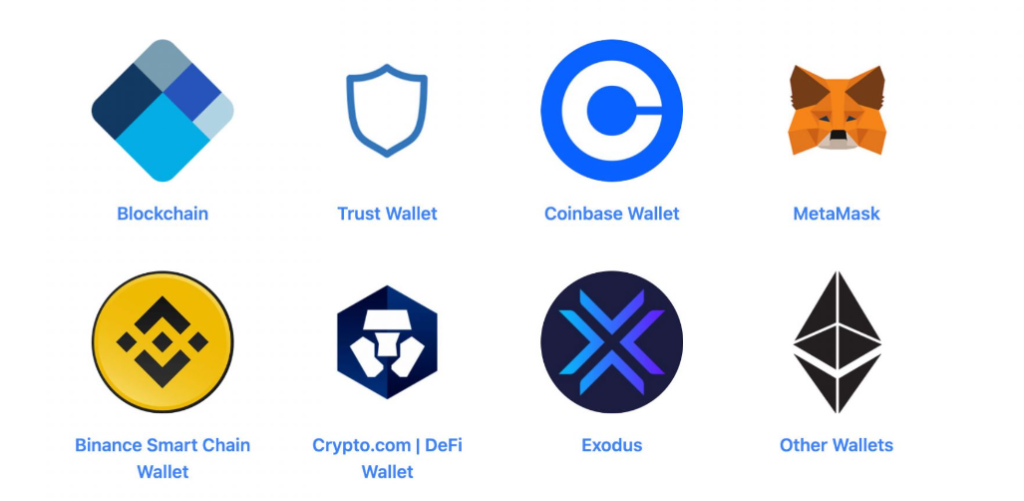
In the ever-evolving landscape of cryptocurrency, securing your digital assets is paramount. This article dives deep into the realms of hot and cold wallets, exploring the best options for storing your cryptocurrency.
Understanding Cryptocurrency Wallet
Digital tools called cryptocurrency wallets let users keep and manage their cryptocurrency holdings and transactions. Two primary types dominate the market: cold wallets and hot wallets.

Cold Wallets explained
Cold wallets, sometimes referred to as hardware wallets, are tangible objects made specifically to store cryptocurrency offline. These cryptocurrency wallets offer unparalleled security, safeguarding against online threats like hacking and malware.
The term “cold” denotes the absence of an internet connection, which serves as a shield against potential online threats like hacking, phishing, or malware attacks.
How Does Cold Wallet Work?
Unlike their online counterparts (hot wallets), cold wallets operate in an isolated environment. They keep safe custody of the private keys to access and control your cryptocurrency.
User’s private keys also known as security elements, the cryptographic keys that authorize transactions, never leave the confines of the cold wallet, providing an extra added security layer of protection. One with cold wallets should keep their private keys safe.
Key Features of Cold Storage Wallets:
- Enhanced Security: By keeping your private keys offline, a cold wallet significantly reduces the risk of unauthorized access or hacking attempts.
- Immunity to Online Threats: Since these are not connected to the internet during transactions, they remain impervious to malware or phishing attacks that often target hot wallets.
- Physical Form: Cold wallets often come in the form of USB cable devices or dedicated hardware, adding a tangible aspect to the security of your digital assets which can be connected to mobile apps through Bluetooth technology to store your assets.
Pros and Cons:
Pros:
- High Security: Unparalleled protection against online threats ensures the safety of your cryptocurrency. This device can be connected to IOS mobile devices too.
- Offline Storage: Private keys remain secure in an offline environment, minimizing exposure to potential risks. It’s a very basic form of storing assets in a physical device.
Cons:
- Less Convenient for Daily Transactions: The offline nature makes them less suitable for frequent crypto transactions compared to hot wallets.
- Initial Investment: Acquiring a cold wallet may require an initial investment at a reasonable price, though the security benefits often justify the cost.
Types of Cold Storage Wallets: Diversifying Your Cryptocurrency Security
In the realm of cryptocurrency storage, cold wallets stand as fortresses of security, keeping digital assets safe from online threats. These physical devices come in various types, each offering unique features and benefits to cater to different user preferences and needs.
1. Hardware Wallets: The Traditional Guardians
Hardware wallets are the stalwarts of cold storage. These hardware devices, often resembling USB drives, store private keys offline, rendering them impervious to online hacking attempts. Popular brands like Ledger and Trezor dominate this space, providing users with a tangible and secure means of storing their cryptocurrency.
Key Features:
- Offline Storage: Private keys are generated and stored offline, minimizing exposure to potential online threats.
- Ease of Use: Hardware wallets often boast user-friendly interfaces, making them accessible to both beginners and experienced users.
2. Paper Wallets: Old-School Security
For those who prefer a low-tech approach, paper wallets offer a straightforward and secure solution. A paper wallet is a physical document containing a user’s private and public keys. It’s generated offline for enhanced security.
Key Features:
- Cold Storage: Since the keys are generated and printed offline, paper wallets provide a high level of security.
- Physical Tangibility: Users have a physical document, reducing the risk of digital threats associated with online storage.
3. Steel Wallets: Durable Cold Storage
Steel wallets take the concept of cold storage to a new level by providing a durable and resilient solution. These wallets are made of metal, ensuring physical protection against environmental factors like water or fire damage.
Key Features:
- Durability: Resistant to physical damage, steel wallets provide robust protection against unforeseen circumstances.
- Long-Term Storage: Ideal for users looking to store cryptocurrency securely over an extended period.
4. Encrypted USB Drives: Portable Security
An innovative variation of hardware wallet, encrypted USB drives offer a portable yet secure cold storage solution. Users can store their private keys on these USB drives, which can be disconnected from the internet when not in use.
Key Features:
- Portability: Users can carry their encrypted USB drives for on-the-go access to their cryptocurrency holdings.
- Secure Disconnection: Disconnecting the drive from the internet enhances security when not actively managing assets.
Choosing the Right Cold Wallet:
When exploring cold wallets, consider factors such as brand reputation, additional security features, and ease of use. Always purchase hardware wallets from reputable sources to ensure the authenticity and integrity of the device.
In the dynamic landscape of cryptocurrency, where the stakes are high, cold wallets stand as bastions of security. While not as agile as their hot counterparts, their impenetrable defense against online threats makes them a preferred choice for individuals looking to fortify their crypto holdings. As you navigate the intricate world of digital assets, understanding the nuances of deep cold storage becomes a crucial step toward ensuring the safety and longevity of your cryptocurrency investments.

Unveiling Hot Wallets
On the flip side, hot wallets are digital or online wallets connected to the internet. While referred to as software wallets convenient for daily transactions, they pose a higher security risk due to their online presence.
How Do Hot Wallets Operate?
The operational principle of hot wallets revolves around real-time connectivity. By being online, these wallets enable quick and seamless transactions, making them suitable for daily use. Private keys, the cryptographic codes that authorize transfers, are stored on internet-connected devices, facilitating instant access to your cryptocurrency.
Key Features of Hot Wallets:
- Accessibility: Hot wallets excel in providing users with immediate access to their cryptocurrency holdings, making them ideal for daily transactions and trading activities.
- User-Friendly Interfaces: Designed for ease of use, hot wallets often come with intuitive interfaces, making them accessible to both novice and experienced users.
- Integration with Exchanges: Many hot wallets integrate seamlessly with cryptocurrency exchanges, allowing users to trade directly from their wallets.
Pros and Cons of Hot Wallets:
Pros:
- Convenience: Hot wallets offer unparalleled convenience, allowing users to manage their cryptocurrency assets on the go.
- Real-Time Transactions: The online nature of hot wallets enables swift and real-time transactions, ideal for users actively involved in the crypto market.
Cons:
- Security Risks: Because hot wallets are online, they are more vulnerable to malware, phishing, and hacker scams.
Not Ideal for Large Holdings: Due to their higher vulnerability, hot wallets are generally not recommended for storing significant amounts of cryptocurrency for the long term.
Types of Hot Wallet
These online wallets come in various types, each tailored to different user preferences and needs, providing a balance between convenience and security.
1. Online Wallets: Seamless Accessibility
Online wallets are web-based wallets that users can access through internet browsers. These crypto wallets are often provided by cryptocurrency exchanges, making them convenient for users who actively trade and require quick access to their funds.
Key Takeaways:
- Convenience: Accessible from any device with an internet connection, making them ideal for users who frequently engage in transactions.
- Integration with Exchanges: Many online wallets seamlessly integrate with cryptocurrency exchanges, simplifying the trading process.
2. Mobile Wallets: On-the-Go Convenience
Applications for cell phones called mobile wallets help customers manage their Bitcoin portfolios while they’re on the road. These wallets are popular for their accessibility and user-friendly interfaces.
Key Takeaways:
- Portability: Users can manage their cryptocurrency holdings using their smartphones, offering unparalleled convenience and the ability to make crypto transactions anytime.
- QR Code Scanning: Simplifies transactions by allowing users to scan QR codes for quick and easy transfers.
3. Desktop Wallets: Secure Transactions on Your Computer
Desktop wallets are software applications installed on a user’s computer, providing a secure environment for managing cryptocurrency. These wallets often offer enhanced security features compared to online wallets.
Key Features:
- Enhanced Security: By keeping private keys on the user’s PC, online threats are less likely to occur.
- Control Over Funds: Users have direct control over their funds without relying on third-party services.
4. Web Wallets: Versatile Online Solutions
Web wallets are hybrid wallets that combine elements of both online and desktop wallets. Users can access these wallets through web browsers while maintaining a certain level of control over their private keys.
Key Features:
- Versatility: Combines the accessibility of online wallets with a degree of control similar to desktop wallets.
- User-Friendly Interfaces: Typically designed with user-friendly interfaces for easy navigation.
Choosing the Right Hot Wallet:
When exploring hot wallets, prioritize security features such as two-factor authentication and encryption. Consider the reputation of the wallet provider and their commitment to ensuring the safety of users’ funds.
In the vast landscape of cryptocurrency storage solutions, hot wallets play a pivotal role in catering to users seeking immediate accessibility and seamless transactions. As you delve into the world of digital assets, understanding the dynamics of hot wallets becomes crucial in making informed decisions about the storage and management of your cryptocurrency portfolio.
The Best of Both Worlds: Hybrid Wallets
Integrating Cold and Hot Wallets
For users seeking a balance between security and convenience, hybrid wallets combine elements of both cold and hot wallets. This fusion caters to diverse cryptocurrency storage needs.
In cryptocurrency, public and private keys are shared addresses used for receiving funds and secret codes that authorize outgoing transactions respectively.
Factors Influencing Your Choice
Security Concerns
Importance of Secure Storage
Security remains paramount in the crypto space. Understand the security features of cold and hot wallets to make an informed decision that aligns with your risk tolerance.
Ease of Access
Balancing Convenience and Security
Consider how frequently you engage in cryptocurrency transactions. For daily use, hot wallets offer quick accessibility, while cold wallets suit long-term storage.
Cost Considerations
Evaluating Financial Implications
Explore the costs associated with cold and hot wallets. While cold wallets may require an initial investment, their long-term security benefits often outweigh the upfront expenses.
User-Friendly Interfaces
Navigating the Wallet Landscape
Evaluate the user interfaces of different wallets. A user-friendly interface ensures a seamless experience, especially for newcomers in the crypto space.
Best Cold Storage Wallets for Cryptocurrency
Consider factors like security features, usability, and reputation when choosing the best affordable cold storage wallet solution for your cryptocurrency. These options ensure your assets remain secure, accessible only to you and there are many other hardware wallets.
Ledger Wallets: Compact and secure hardware wallets with advanced features like secure chip technology and PIN protection. Ledger wallet types come in a series where that provide cold storage devices like Ledger Nano S Plus, Ledger Nano X, Ledger Stax.
Trezor: Pioneering hardware wallets known for their emphasis on security, user-friendliness, and a robust recovery process.
KeepKey: Blending sleek design with robust security, KeepKey offers a visually appealing option with easy verification.
Coldcard: Bitcoin-exclusive cold storage with air-gapped signing and anti-phishing measures for enhanced security.
Paper Wallets: A low-tech, secure option for deep cold storage, generating offline keys to create a physical document.
SteelWallet: Durable and fireproof metal solution, protecting against physical damage and environmental factors.
FAQs
How do I recover funds if I lose my hardware wallet?
Most hardware wallets offer recovery options through recovery phrases or backup keys, ensuring you can regain access to your funds.
How does cold wallet prevent theft?
Cold wallets prevent theft through offline storage, secure chip technology, PIN protection, limited exposure to online threats, and transaction verification, ensuring a multi-layered defense against unauthorized access to cryptocurrency holdings.
Which is safer, a hot wallet or a cold wallet?
A cold wallet is generally considered safer than a hot wallet. Cold wallets, like hardware wallets, store keys offline, reducing exposure to online threats. Hot wallets, while more convenient for daily transactions, are connected to the internet and pose a higher security risk. The choice depends on the user’s preference for security versus convenience in managing their cryptocurrency.
What Happens if I Lose My Cold Wallet?
Losing a cold wallet doesn’t mean losing your funds. Most cold wallets provide recovery options through seed phrases or backup keys. Always keep these in a secure location.
Conclusion
In the ever-evolving world of cryptocurrency, choosing the right storage solution is a critical decision. Whether opting for the security of cold wallets, the convenience of hot wallets, or a blend of both, understanding the nuances is key.
Safeguard your digital assets with knowledge, experience, and a well-informed approach to exploring cold wallets and hot wallets.





